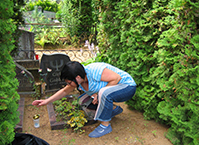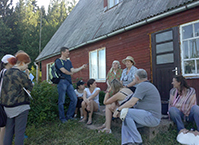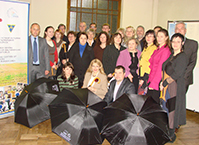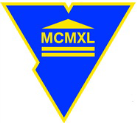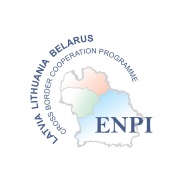E-MUSEUM “VITAMEMORIAE”: COLLECTION AND RESEARCH
Foto
To record people’s life stories, traditions, customs, rituals, rare photographs, old documents, ethnographic differences in funeral rites, etc. the researchers of Daugavpils University and Yanka Kupala Grodno State University carried out field studies in LV and BY territories: in the villages of Krāslava, Rēzekne, Daugavpils regions (Asūne, Foļvarka, Kruki, Skrudaliena, Indra, etc.) and in Belarus (Braslav and Vitebsk districts). The field studies were implemented in the framework of the project “Popularization of the Centres of Oral History in the LV – BY Cross-Border Area”, ID Nr. LLB–2–143, of the Cross Border Cooperation Programme Latvia–Lithuania–Belarus implemented within the framework of the European Neighbourhood and Partnership Instrument 2007–2013.
During the research and the expeditions, the project implementers collected, segmented, transcribed, and digitized the audio-visual materials (audio and video records, photo evidence). To make the collection of the E-Museum more complete, the field researchers and cemetery researchers of Daugavpils University and Grodno University will segment and systematize the audio-visual materials collected during oral history, cemetery research, folklore and dialectology expeditions of the previous years that until now have not been used, aiming at including the best and most valuable segments of the collection into the E-Museum.
The story tellers whose life stories make the input of the E-Museum are people of various generations, mostly elderly people. The childhood of aged people, who at present are about 80 years old, proceeded in the 1930s, therefore the segmented audio-visual units included in the E-Museum chronologically begin from 1929 and can describe only the respondents’ childhood memories. The memory of the older generation is particularly important for the anthropological and historical research – it shifts the time borders, allows for moving to the events of the past through the viewpoints of those who have experienced those times. The facts can be found in chronicles, but what the witnesses of that time can reveal give the memories colour, scent, involve one into mutual emotional experience. The witnesses of the epoch tell about the events form the viewpoint of their own experience.
To motivate the respondents to share their life stories, the project field researchers used Paul Thomson’s oral history research method – enlarged vision of social history where diverse groups of the society are brought together and share common historical experience.
The research basis is the methodology of a semi-structured interview that envisages focused (guided) reconstruction of the past events and an interviewer only helps the respondents to reconstruct the past.
The oral history collection of the E-Museum is envisaged to be used not only by specialists but also by a greatest possible range of non-specialists, therefore, departing from the academic tradition envisaging a complete script and transcript (written transcription of an audio or video record) of life stories, the project experts agreed to segment 360 most vivid, colourful, expressive, unusual, typological or extraordinary audio-visual units (photo, video and audio testimonies) – thematically complete excerpts, and to systematize them according to the thematic plan that would encompass both the historical processes of the 20th century (from the 1920s-30s) and the most essential events of an individual’s life.
ACCESSIBILITY OF THE COLLECTION
The interviews included into the collection are arranged according to the principle of historicism, anthropologism and personalia, indicating the author’s name and the interviewer’s name and surname.
-
Alla Gajdis: About the War
Mother told me that I was lying on the swaddling cloth mother-naked (1941), a German came up to me and gave a tickle to my belly.
I remember several episodes.
German gendarmes were horrible people. …
Researcher: Aleksej Zagidulin,Yanka Kupala State University of Grodno
Categories: Wartime, Alla Gajdis
-
Lev Shlyakhter: father's arrest
What are your first childhood memories?
I can tell you about my first childhood memories now.
Please tell.
I have difficult memories. When I was 10 I was left fatherless. After Kirov was killed …
Researcher: Natalja Ivashchanka, Svetlana Silava, Yanka Kupala State University of Grodno
Categories: First childhood memory, Parents, Lev Shlyakhter
-
Sofia Rul: clothes
And what did your parents gown you?
The first thing I remember that they tailored a dress from hand-woven cloth. We put on some shoes as we call them now. Earlier we called them «burki», …
Researcher: Наталья Иващенко, кандидат исторических наук ГрГУ им. Я. Купалы, Светлана Силова, кандидат исторических наук, ГрГУ им. Я. Купалы
Categories: Residence and weekdays, Sofia Rul
-
Sofia Rul: confessional relations
Let’s turn back to the village where you lived. People of what nationalities could you meet there?
There were Belarusians mainly, there were also the orthodox Christians. My mother lived& …
Researcher: Наталья Иващенко, кандидат исторических наук ГрГУ им. Я. Купалы, Светлана Силова, кандидат исторических наук, ГрГУ им. Я. Купалы
Categories: Holidays and traditions, Sofia Rul
-
Sofia Rul: toys
Did you have toys in your childhood?
One toy only. My elder sister was 6 years older than me, so she made me up such dolls stuffed with cuttings.
Dolls, yes?
Well, yes.
Did you paint the eyes by …
Researcher: Наталья Иващенко, кандидат исторических наук ГрГУ им. Я. Купалы, Светлана Силова, кандидат исторических наук, ГрГУ им. Я. Купалы
Categories: First childhood memory, Sofia Rul
-
Mikalai Karostsik: Polish border
And where was the border here?
The border ran approximately along the villages. If you look at that side, you see. Kamaisk, Osava. Now they are Selishchy, Varany. And now there are Vardamichy, …
Researcher: Олег Коляго, старший преподаватель, ГрГУ имени Я. Купалы
Categories: Confessional and international relations, Mikalai Karostsik
-
Mikalai Karostsik: first childhood memory
Well, do you remember your childhood years?
What?
Childhood years.
Of course, I remember everything.
So please tell me whether you had a bike?
Oh, I had a bike, all ... all the time I had it. …
Researcher: Олег Коляго, старший преподаватель, ГрГУ имени Я. Купалы
Categories: First childhood memory, Mikalai Karostsik
-
Leonida Makhon: Life during the Polish times (before the War)
Did you mother tell you about the Polish times? How did they live at that time?
Well, she told me that at… that it was better times than … She told me that she had to work, so when you …
Researcher: Олег Коляго, старший преподаватель, ГрГУ имени Я. Купалы
Categories: Family, Leonida Makhon
-
Leonida Makhon: About the War
What can you recollect about the War? What do you still keep in your memory?
What do I keep in my memory? Well. Shots only. My grandmother and mother told me «Lie down, don’t stand at …
Researcher: Олег Коляго, старший преподаватель, ГрГУ имени Я. Купалы
Categories: Beginning of the war, Leonida Makhon
-
Lev Shlyakhter: Impression of Grodno
So I speak about the people in Grodno, the inhabitants of Grodno you met. Did the differ from those living in Magadan? What is your first impression about the people?
Living here?
Yes, here.
From …
Researcher: Natalia Ivashchanka, Sviatlana Silava
Categories: Residence and weekdays, Lev Shlyakhter


